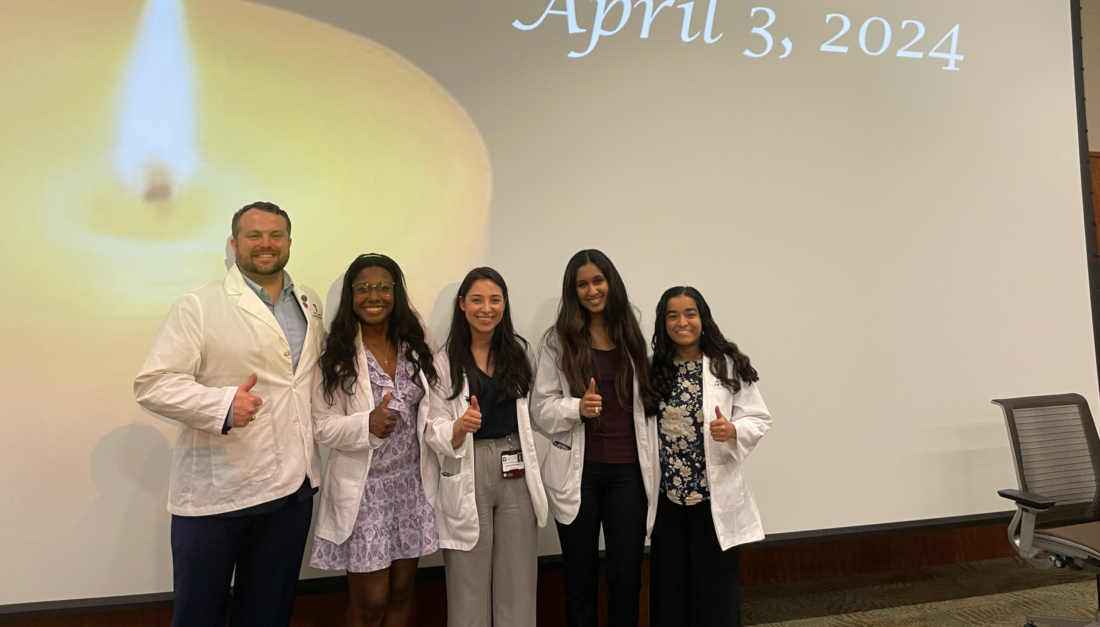You Asked: What is the difference (or lack thereof) between oral and genital herpes?

A woman stands on a porch, practicing yoga as the sun sets behind her figure. The entire scene exudes tranquility as she turns to the camera and firmly declares, “I have genital herpes,” with a smile on her face.
Most of us have seen these commercials, and have experienced the bizarre and uncomfortable response that is natural when someone brings such a taboo and private matter to light. However uncomfortable it may be, though, it’s important to be informed about Sexually Transmitted Infections (STIs) and the ways you can contract them, including genital herpes. According to the Centers for Disease Control and Prevention (CDC), one of every six people, ages 14 to 49, have genital herpes.
Perhaps the most shocking thing about the herpes simplex virus (HSV) is that it isn’t necessarily transferred from genitals to genitals during intercourse. HSV has two common strains: HSV-1 (widely known as oral herpes, cold sores or fever blisters) and HSV-2 (the traditional cause of genital herpes).
“For a long time, the medical world made the distinction between HSV-1 and HSV-2, because it was thought that HSV-2 led to types of genital and oral cancers. Now we know that the human papilloma virus is the leading culprit for causing cancers specifically focused around the genitals and mouth, not herpes” explained John Wright, D.D.S., regents professor and department chair of diagnostic sciences at the Texas A&M University Baylor College of Dentistry. “However, HSV-1 and HSV-2 aren’t mutually exclusive; there is about a 20 percent crossover between the two types.”
The U.S. National Library of Medicine estimates that most people will contract oral herpes by the time they are age 20. HSV affects the nervous system, and outbreaks can be brought on by many factors including:
- Hormone changes, including menstruation
- Stress
- Exposure to the sun
- Fever
This 20 percent crossover means that traditional, oral herpes can be present in the genital region, and conversely, HSV-2 herpes can infect the mouth. According to Wright, both strains will exhibit identical symptoms in the mouth:
- Itching of lips or skin around the mouth
- Pain on the lips or in the mouth
- Tingling near the lips and mouth
- Lip blisters or sores (ulcers) typically where the lip meets the skin
- Blisters or rash on the gums, lips, mouth or throat
- Swollen lymph nodes
“The main difference between the two types of HSV is a slight difference in DNA,” Wright said.
Similarly, HSV-1 will present itself like HSV-2 if it becomes present in the genital region:
- Blister(s) around the genitals, rectum or mouth
- Sores that take weeks to heal
- Swollen lymph nodes
“With both types, the first outbreak that occurs will be the most severe, and may even display flu-like symptoms. Recurrences happen more frequently during the first year of infection, with 50 percent of those infected experiencing four outbreaks within a year. However, each subsequent recurrence will display more mild symptoms and may even be asymptomatic, which increases the chance of unknowingly spreading the virus to a partner (viral shedding),” said John K. Midturi, D.O., assistant professor of internal medicine at the Texas A&M Health Science Center College of Medicine in Temple.
Although outbreaks can be asymptomatic, viral shedding increases when they reoccur. While antivirals can treat outbreaks and reduce the chance of spreading it to others, they do not cure the virus.
“Once a person is infected with a strain of HSV, it is permanent,” Wright explained. “Antivirals can manage the symptoms and limit its ability to spread, but they do not cure the patient of the virus.”
Both strains of HSV are highly communicable and can infect other parts of the body, specifically if the virus gets into open wounds, but the marked increase of HSV-1 and HSV-2 being found in the oral and genital regions is attributed to increased occurrences of oral sex. For example, if a person is having a recurrence of HSV-1 in their mouth, and is engaging in oral sex, they put their partner at a higher risk of contracting HSV-1 in the genital region.
While most outbreaks are mild, and many people are unaware that they even have the virus, some people can have severe reactions to it. People who are immuno-compromised may experience outbreaks in less traditional locations, such as the esophagus or liver, and may even develop pneumonia precipitated by the virus. Even in those with uncompromised immune systems, the membranes surrounding the brain or spinal cord can become infected and inflamed, causing herpetic meningitis.
“The best method of prevention is treating outbreaks when they occur, to reduce viral shedding, and using condoms or completely abstaining from sexual activities, especially during outbreaks,” Midturi advised.
Condoms don’t cover all the areas that genital herpes can occur, but they can limit exposure. To reduce the spread of HSV, always wash your hands after touching infected areas or fluids and avoid sharing utensils and other objects that enter your mouth during recurrences.
Always inform your partner if you have genital herpes, so you can make responsible decisions, and try to treat any outbreaks that occur. If you suspect you might have genital herpes, visit your health provider for examination or testing. For more information about genital herpes, visit the CDC site.
Media contact: media@tamu.edu


